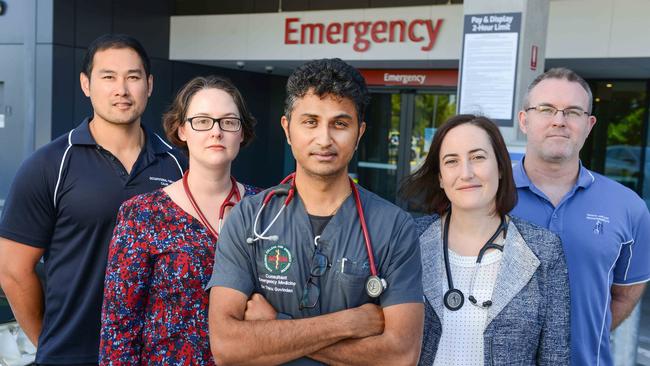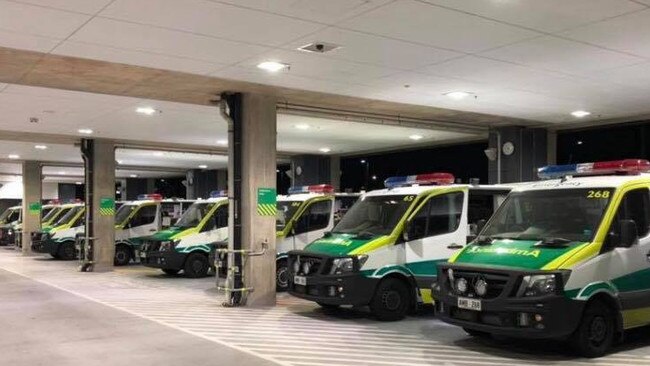Action plan to ease ED pressure and ramping at Royal Adelaide Hospital
An action plan to ease pressure on the Royal Adelaide Hospital emergency department – and reduce ambulance ramping – includes a new team to specifically deal with elderly patients.

SA News
Don't miss out on the headlines from SA News. Followed categories will be added to My News.
- ‘Worst case’: Elderly woman waited eight hours in ambulance
- Record ramping as 18 ambulances stuck in $2.4bn RAH carpark
An action plan to ease pressure on the Royal Adelaide Hospital emergency department – and reduce ambulance ramping – includes a new team to specifically deal with elderly patients.
The EDGE (ED Geriatric Syndromes Eighty+) team of a geriatrician, physiotherapist and occupational therapist started on Monday following the “Summit to Stop Ramping” called by Central Adelaide Local Health Network (CALHN) chief executive Lesley Dwyer on Thursday last week.
They work alongside ED staff to assess and treat the specific needs of elderly arrivals.
Ms Dwyer said more initiatives were expected to be finalised and implemented in coming weeks.
“Our first new project began with a trial at the Royal Adelaide Hospital embedding specialist geriatric clinicians within the ED,” Ms Dwyer said.

“The geriatrician, physiotherapist and occupational therapist are working alongside emergency department staff to give vital expertise at the earliest opportunity.
“We have already helped a number of patients avoid a hospital stay, by receiving appropriate care at home with specialist medical support, equipment and services.”
Ms Dwyer said it was “early days” but the move should ease pressure on the ED while resulting in better outcomes for patients by ensuring elderly people who require inpatient care were given the best support and identifying those who could be cared for closer to home. Freeing ward beds is part of the solution to easing the ED gridlock, which in turn results in ambulances ramping as the ED fills beyond capacity, including with patients who have been treated and are waiting for beds.
Dr Alice Bourke, clinical lead of geriatric medicine at RAH, said early feedback from patients had been positive.
“One patient’s family said they had never had such good service and all have thanked us for the care and advice they’ve received for their loved ones, which shows we are on the right path,” Dr Bourke said.
Further initiatives include the launch of a patient awareness campaign that prompts staff, patients and families to ask key questions about what is wrong with the patient and what the patient needs to achieve to go home.
Ms Dwyer said this technique had been proven to reduce delays in care and improve patient flow.
The Summit to Stop Ramping was a CALHN initiative covering the RAH and the Queen Elizabeth Hospital but not Flinders Medical Centre, where ramping has reached records levels this month.



